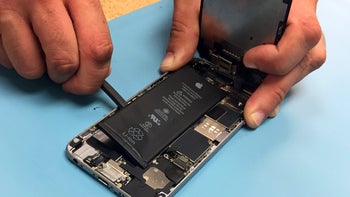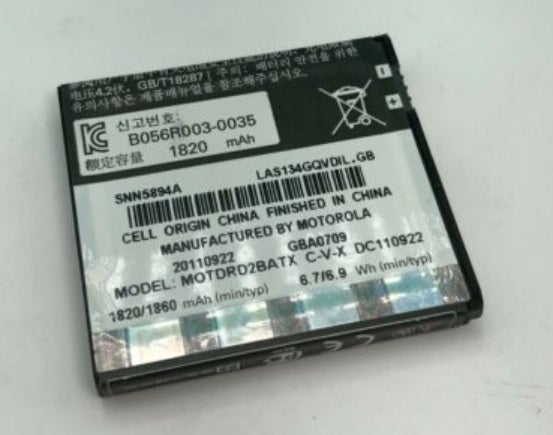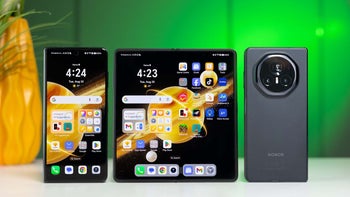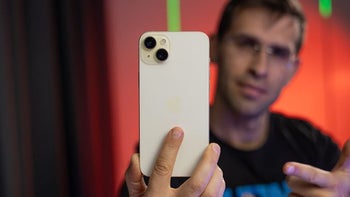Back to the Future: EU wants to force smartphones to be equipped with replaceable batteries

When the iPhone 17 is released in 2025, it could be equipped with a USB-C port, at least in Europe anyway. That's because it was the European Council that approved the common charger directive that will take effect on December 28th, 2024. That means that Apple doesn't have to comply with the directive until it releases the iPhone 17 series. The company could decide to make the change before the deadline, and in other markets besides Europe.
Because most Android phones already sport a USB-C charging port, the iPhone will be at the center of the common charger directive. As a result of the directive, electric waste would be reduced, and consumers would have the convenience of using just one charging platform for their devices. Consumers would also save money if they buy an iPhone since they wouldn't have to purchase a proprietary Lightning cable from Apple.
Another big seismic change could be coming to smartphones by way of Europe
Europe could be at the center of another seismic smartphone change but this time the impact would cover both iOS and Android-flavored smartphones. According to Android Police, the EU is turning its attention to batteries and wants to force manufacturers to use replaceable batteries. While the iPhone has always had a sealed battery, in the early days of Android you could find models that featured replaceable batteries. But that was before slimmer phones were designed with water resistance in mind.

Extendable, removable battery for the Motorola DROID Pro
In those days, users could buy extra batteries, charge them, and simply swap out a dead battery for a fully charged one. Some manufacturers also offered larger capacity batteries for their handsets that users could insert in their phones for extended battery life. Lawmakers in the EU have already agreed to the new rules which also force battery manufacturers to use a specified percentage of recycled materials in their products: 16% of the cobalt, 85% of the lead, 6% of the lithium, and 6% of the nickel used in a battery must come from a recycled source.
To make sure that there is enough recycled material available, the law requires that 45% of electronic devices be collected by 2023 reaching 70% by 2030. The EU will give battery manufacturers 3.5 years following the passing of the law to design batteries that users can remove and replace all by themselves. Phone makers will also have to make big changes if forced to offer replaceable batteries in Europe.
If this legislation is passed by Parliament, phone manufacturers might have to give in to offering replaceable batteries on handsets by designing thicker phones as sealed batteries allow manufacturers to produce thinner models. The capacity of batteries used on smartphones will probably decline since consumers would be encouraged to do what they did in the good old days: buy spare batteries and carry them around fully charged ready to be swapped for a dead battery in a heartbeat.
If someone has an issue with the battery on their phone these days, the device needs to be sent back to the manufacturer or seen at an authorized service center. We can understand that the EU wants to make things easier for consumers by saving them the expense and time of bringing their phone to a service center for a battery change. But the question is whether the inconvenience this saves is worth the inconvenience of having to carry around extra batteries wherever you go just in case the one on the phone dies.
Apple could team up with Android phone manufacturers in an attempt to prevent this legislation from passing
Of course, carrying around a power bank is one way to get around the change to lower-capacity replaceable batteries if the legislation passes. But you can be sure that phone manufacturers are going to fight this with everything they've got. Remember, when it came to the common charger directive, only Apple was impacted since most Android phones already use USB-C.
But forcing all manufacturers to use replaceable batteries could result in Apple teaming up with Android manufacturers like Samsung, Google, OnePlus, and others in an effort to prevent this initiative from passing. If it does pass, it would only be a law in Europe. However, manufacturing different models with different designs to meet regional requirements would probably be too costly even for Apple.
Therefore, there is a good chance that Apple will include a USB-C port globally on the iPhone 17 line, and might end up using replaceable batteries on all iPhone models three and a half years after Parliament passes-if it passes- the new rules covering batteries used on devices sold in the continent.












Things that are NOT allowed: